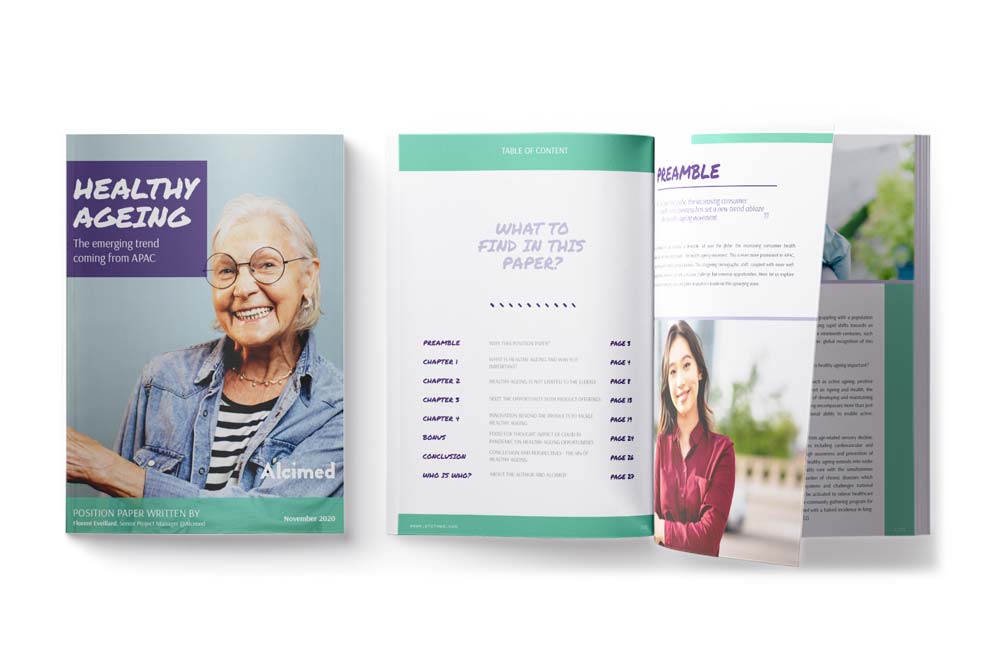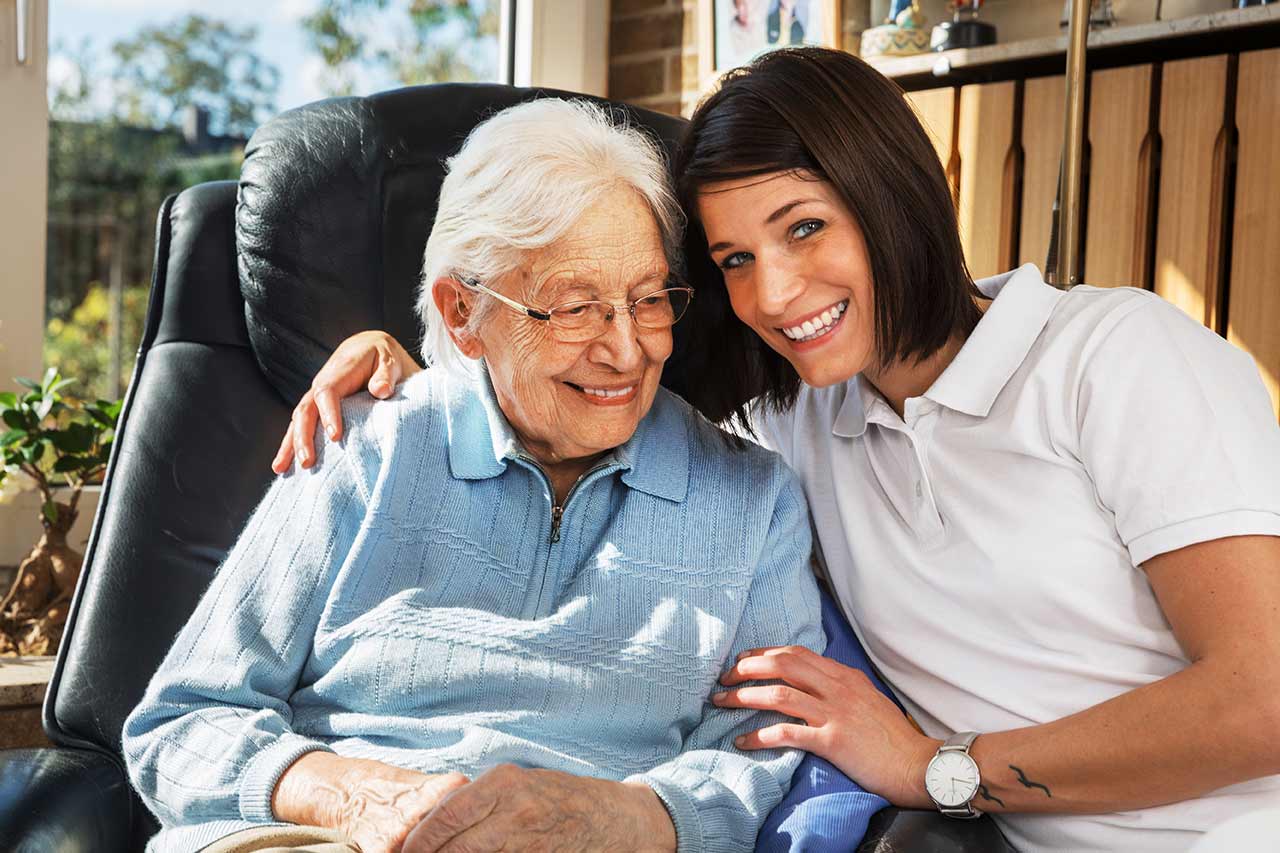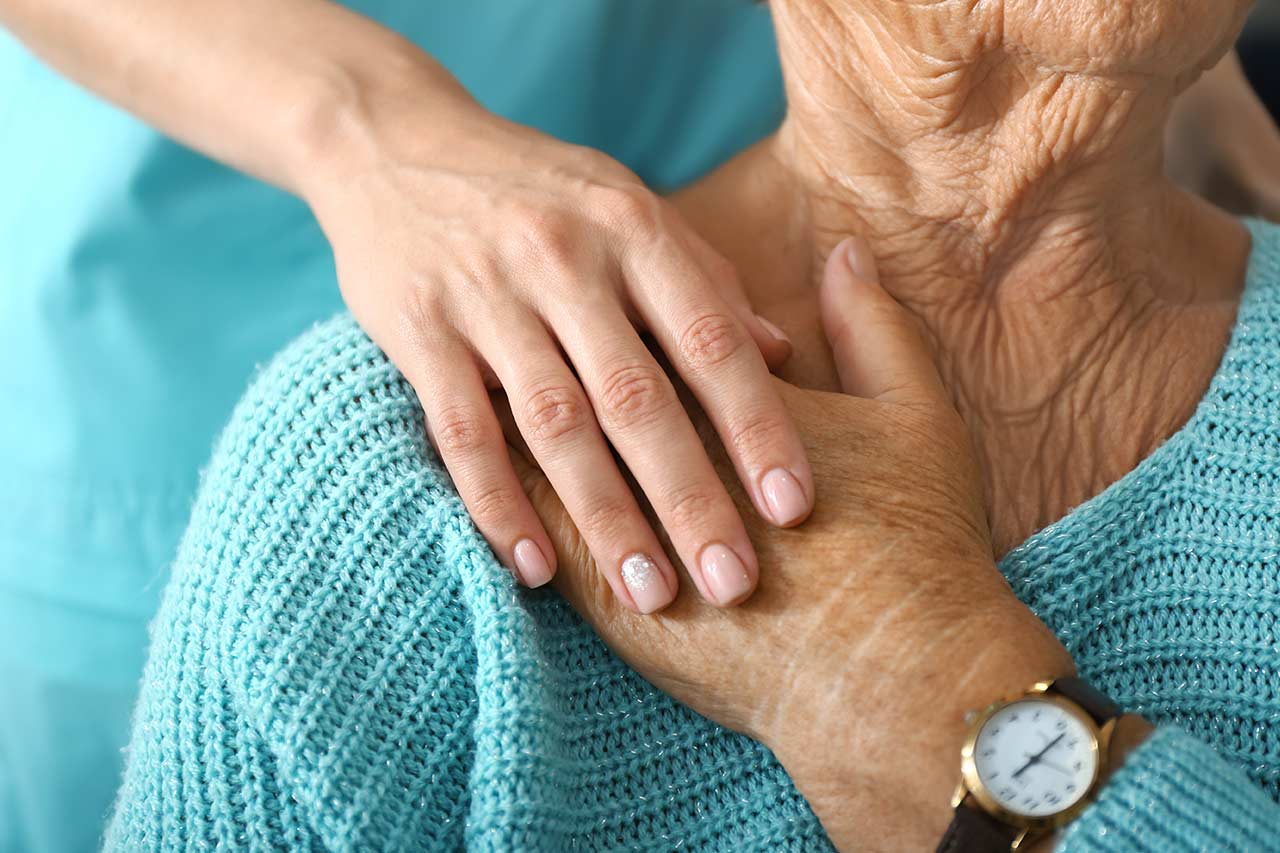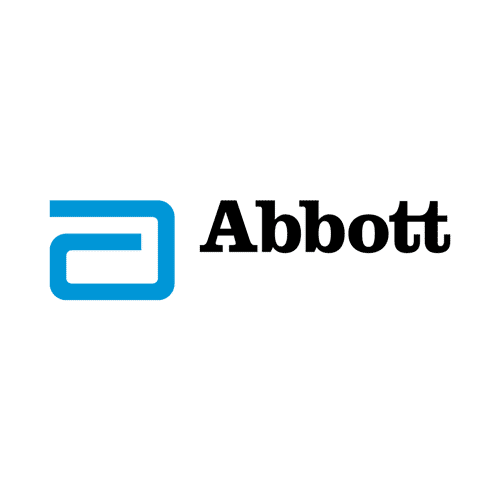
Healthy aging

Improve practices and organizations to build a society of healthy aging
Our specialized team supports public-sector and non-profit players in their innovation projects related to healthy aging, and in understanding needs and enhancing practices for healthcare professionals, beneficiaries, relatives and caregivers.
They trust us

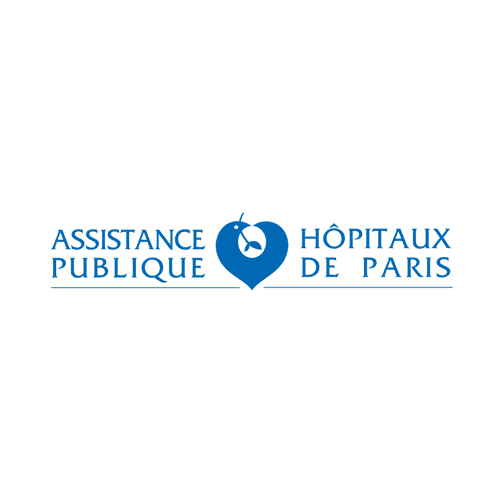


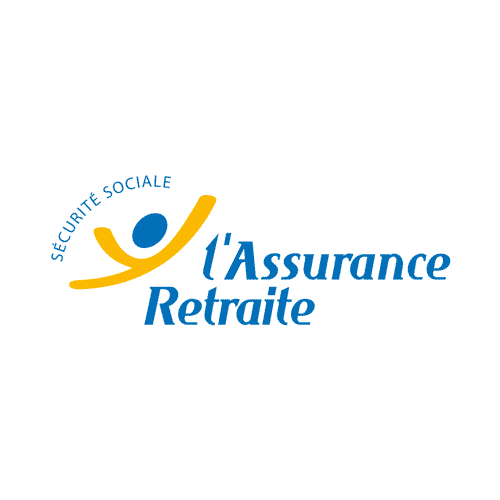
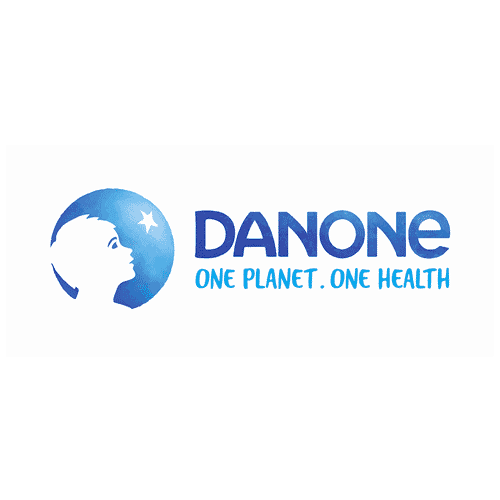

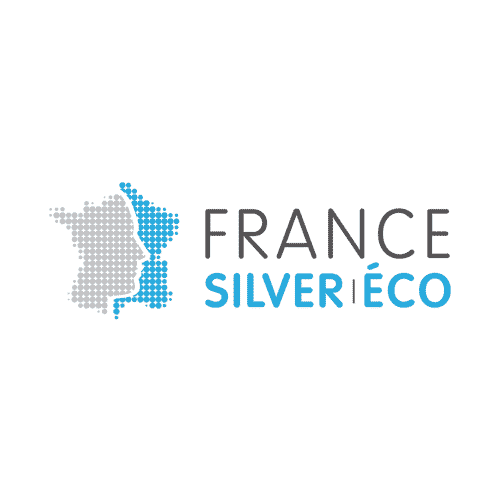
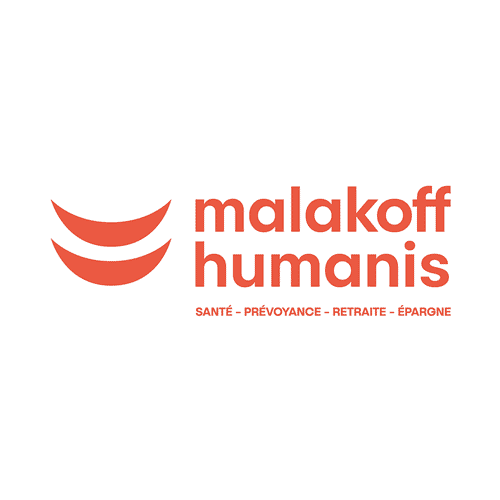
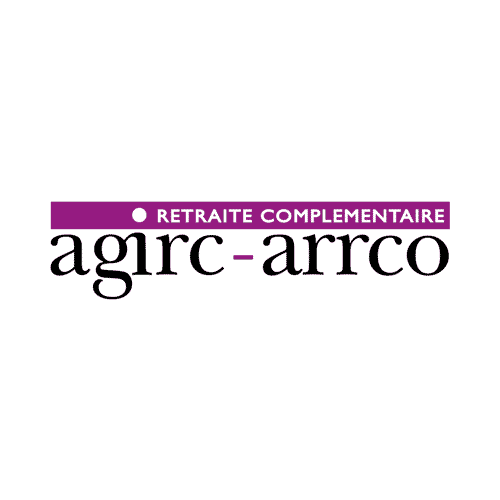
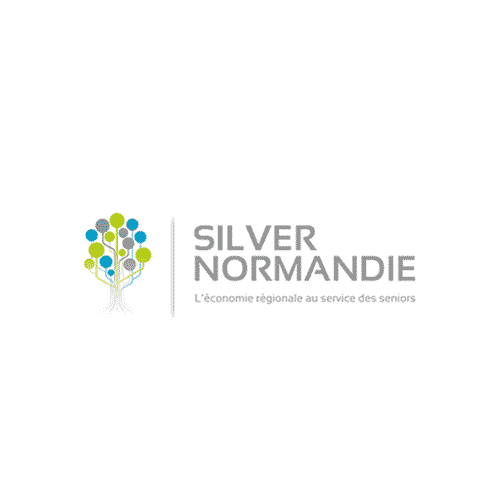
The challenges related to healthy aging
Many populations are undergoing increases in aging. For example, by 2050, France will see a large increase in its population above 60 years old due to increasing life expectancies and standards of living, and the retirement of the “baby boomer” generation. This situation makes it essential to organize adaptive prevention measures – both for preserving quality of life and for limited public expenses.
Such preventative measures can intervene across three timescales:
- Avoiding the risk of developing a disease or deficiency (primary prevention)
- Avoiding the risk of worsening the conditions by early treatment (secondary prevention)
- Limiting the related consequences (tertiary prevention)
For example, for young retired individuals, the practices recommended include eating well, staying mobile, and connected with loved ones, in order to reinforce competencies and ensure autonomy as long as possible. For those older than 75, health recommendations and tips that pertain to bodily adaptations are evolving: adapting the home, technical aids, and other methods to help them stay at home more efficiently.
Additionally, these actions involve both collective action (choices based on solidarity) and individual action (changes in behavior). The French “Healthy aging” plan (2007-2009) marked a turning point in the country’s public policy. These initiatives are now being implemented by “Santé Publique France” and the pension funds through the “For healthy aging” program, which provides numerous resources for the general public and professionals.
However, numerous challenges are still faced by stakeholders, including:
Despite the action taken by companies, large inequalities still exist regarding life expectancy and quality of life – these become more apparent with age. These inequalities are not only due to biological and genetic factors. According to the WHO, the diverse experiences and needs of older people is largely explained by their physical and social environment and by its impact on their behavior. To address this, the WHO launched the “Decade of Healthy Aging” (2021-2030) with the goal of reducing health inequalities amongst older people.
What are the levers (including digital) that affect the most vulnerable populations and those with less access to health systems? How can we create a better image of aging in our society to cause behavioral changes?
Many practical objectives can be put in place to ensure that one is successfully aging in a healthy manner, including:
- continuing to maintain and even improve one’s intellectual, physical, social and mental abilities
- prevent the risk of illnesses (particularly chronic ones) that occur with age, by adopting an appropriate lifestyle
- early treatment of illnesses or disorders that are likely to lead to incapacity
- reducing or improving disabilities (high blood pressure, sensory problems, walking difficulties, balance problems, etc.)
- engage in regular exercise or sport
- adapt one’s eating habits in line with the principles of local public health authorities and in a manner that promotes healthy lifestyles
- adapt their physical and social environment (housing and living conditions, technical aids, town planning)
- maintaining a rich social life in their community and links between generations
- combat isolation
- promote the concepts of life projects, self-esteem and adapting to change – for example, by strengthening the role of seniors and their participation in community life
How can we define which actions are the responsibility of individuals, private actors (start-up, industry players), and public policy? How do we prioritize and support these actions with adequate resources? Which tools (digital, technical aids, devices) optimize these actions?
To successfully roll out these diverse objectives, many competent players must be mobilized. Designing and implementing age-related policies can involve government players (in France, for example, the Ministry of Health, Ministry of Solidarity, Ministry of Labor, Ministry of Culture), local authorities, social protection (branches of social security system related to disease, retirement, and autonomy), and other players. Additionally, healthcare and social care professionals (including home helps and cultural mediators) can also play roles, as can players in the “silver economy”, beneficiary associations, living labs, resource centers, and more.
How can we align amongst healthcare professionals, insurers, employers, clinics, hospitals, public authorities, and solution providers to promote healthy aging? How can we ensure efficient and relevant funding? What key indicators can be defined for optimizing healthy aging actions? How can we bring to life shared experiences?
Today, the journey of older people – especially during the beginning of loss of autonomy – affects their loved ones, whether it’s for daily support, adapting their home, or carrying out administrative tasks. Carers are defined as those who “come to help, non-professionally, on a principal basis, partially or completely, to a dependent in their family or friends, for the activities of daily life”. Carers are key players, but are often not recognized and face multiple difficulties, including lack of rest, lack of training, difficulties balancing with their professional life, and financial difficulties. Several initiatives have been deployed to address this, such as the French program “Agir pour les aidants” (“Act for the carers”), or creation of a leave system for care givers to take paid time from work.
Facilitating daily life also depends on developing alternatives to traditional private housing and institutional care, particularly thanks to inclusive housing – which allows one to live with a semi-permanent carer – or intergenerational housing.
How can we support the development of inclusive housing? How can we better protect and address the needs of care givers (through work-life balance, rest, trainings, for example)? What information sharing should be put in place between structures, services, and close family/friends? How can caregiving careers be made to look more attractive?
Currently, caregiving services operating in beneficiaries’ households and retirement homes have difficulties recruiting and keeping caregivers for multiple reasons, such as the poor image of elderly care careers, lack of career growth, poor working conditions and low pay.
As a result, these lack of human resources translate to negligent practices and a lacking capacity for responding to the needs of elderly people who receive care.
Public authorities have engaged in several plans of action (in France, these include the “Ségur de la Santé”, and plans to increase job opportunities to help the elderly), but it is still too early to know whether these plans offer real benefits.
How can we give value back to caregiving careers? How can we fight against negligence by increasing good practices (through trainings, indicators, etc.)?
How we support you in your project related to healthy aging
The principal goal of the projects we carry out in this field is to support the adaptation of practices and put in place innovative actions for beneficiaries, healthcare professionals, establishments, public authorities and companies.
At Alcimed, we have a team dedicated to public policies, working at the national level (for ministries, funds, national agencies, etc.) and at the regional and local level (ARS, CD, MDPH, organizations managing social and medico-social establishments, federations, etc.). In particular, this team regularly supports players in diverse ecosystems (local authorities, regional agencies, CCIs, etc.) with experiments, collaborative projects, innovation and structuring in the silver economy sector.
We are accustomed to working with all of the players involved in senior citizens, and have developed a deep understanding of healthcare challenges, regulations, economic and organizational issues, as well as market opportunities that relate to the needs of active, frail or dependent older people, at home or in institutions. Our position at the interface of local and national policies, as well as in the world of business, associations and government, makes us a privileged partner with a neutral view of various issues raised by this problem.
Examples of recent projects carried out for our clients in healthy aging
Supporting the CNAV in encouraging the emergence of innovative solutions for healthy aging
In the context of driving its policy for preventing loss of autonomy, the CNAV encourages technological and organization innovations, or the development of services that encourage healthy, active aging for seniors.
Supported by Alcimed, the CNAV worked between 2017 and 2019 on a virtual competitiveness cluster project to promote the emergence of technical aids for healthy aging. This mission made it possible to identify the founding partners of the scheme, as well as to define the architecture of a project that meets the specific needs of the Carsat and project sponsors.
In February 2019, the VIVA Lab scheme was launched in partnership with MSA, France Active, l’Agirc-Arrco and the Banque des Territoires in order to encourage the identification and maturation of innovative solutions to prevent loss of autonomy and promote healthy aging. Alcimed was involved at the structuring of the VIVA Lab scheme in 2019 and since then, we have been in charge of deploying the plan of action, coordinating the Carsat network, and the ongoing evaluation.
Supporting the CNSA on the market and usage of technical aids
Alcimed first carried out a study for the National Solidarity Fund for Autonomy (CNSA) to develop reference elements for the necessary activities and competencies needed to optimize compensation through the use of technical aids. The goal was to improve the management of practices and support throughout France, and to encourage players to develop their skills.
To do so Alcimed developed and tested a self-assessment tool for ergonomic and user-friendly compensation support, enabling actors to quickly understand its usage. We also compiled a reference guide including activities, competencies, partners, recommendations and tips, and support tools.
Alcimed then conducted a market study for CNSA, focusing on the prices of technical aids in Europe, especially those designed for people with loss of autonomy. This study allowed CNSA to better understand the European support systems and to identify the best practices and tips applicable in the French context, and to further reflect on improving the disability compensation system in France.
Notably, Alcimed identified the available products in each country, segmented the patients based on their characteristics and specific needs, mapped the market players (such as manufacturers and distributors), identified the support systems, and carried out a comparative analysis of prices and out-of-pocket expenses.
Organizing a hackathon on healthy aging for a department council
The goals of the hackathon were to make the existing services even better and to find and develop new initiatives supporting adults over 60 years old, particularly in terms of promoting physical and mental health, food and culture, and promoting good health on a daily basis.
The hackathon was an opportunity to share an original and stimulating adventure while focusing on the real-life problems and learn from expert advice in a short time dedicated to innovation. The winning projects then received the support of the department and the funding bodies of the territory.
Over the course of two days, Alcimed led workshops and proposed personalized and methodological support. Overall, the workshop brought together 60 participants (including carers, project leaders, players from the voluntary sector, players from the silver economy and from the medico-social sector), and supported 10 projects.
Structuring of the Silver Economy Observatory by identifying and analyzing developments of its sector for the benefit of its players
The Silver Economy Observatory, launched by France Silver Éco, simultaneously represents a space for reflection and a place for collective awareness economic, social, societal and ethical challenges of an aging society.
The objectives of this observatory are:
- To participate in disseminating knowledge and understanding subjects related to population aging
- To propose an evolving tool, enriched each year with new data, analyses, and recent research
- To conduct thematic studies to refine the vision of the sector’s development, at both the national and regional levels
To do this, Alcimed built a reference framework, then conducted the initial dashboards and trends reports following the analysis of available quantitative data and a field study among sector players.
Assessment of the gerontological service networks in Auvergne-Rhône-Alpes for the ARS
Alcimed assisted the ARS Auvergne-Rhône-Alpes in assessing the functioning of its 28 gerontological networks. Made up of hospitals, departmental councils, EHPADs, homecare services and associations, these networks are designed to support professionals in their work with the elderly.
We held group interviews with all the players involved in these networks, with the aim of gathering their expectations regarding the missions of the networks and their prospects for development, the issues surrounding territorial coverage, the financing of the networks and the resources needed to keep them going.
The project highlighted the fact that, since their creation, the sectors had followed different paths. This awareness of the diversity of models has enabled the ARS to position itself in terms of its expectations as a funder of the networks, and to communicate with them in a more impactful way.
Exploration of the elderly ecosystem in Singapore
Alcimed helped the Regional Market Access Director and the Managing Director of one of Singapore’s leading players in the nutrition and health sector to assess the opportunity of the elderly segment. At the start of the project, it was recognised that by 2030, a quarter of Singapore’s population would be aged over 65. The client wanted support in understanding how to seize the resulting opportunities.
The market study provided a clear picture of how the market for the elderly was organised, identified trends and new policies/programs that would have an impact in the future, and assessed the market’s potential.
You have a project?
To go further
Cross-sector
Alcimed Position Paper – HEALTHY AGEING
Population ageing is a worldwide phenomenon. This is intensified in APAC, crowned as the fastest ageing region in the world. Coupled with the boost in health awareness, the concept of health has also ...
Healthcare
The Care Manager, future key player in our patient pathway
Year after year, the number of elderly people losing their autonomy in France will inevitably increase, due to the ageing of the population. Medical progress and improved living conditions will not ...
Cross-sector
How does the prevention of age-associated loss of autonomy and old age dependency positively impact our society?
The ageing of the population, accompanied by the phenomenon of the fragilty of the elderly, has a negative impact on our public health system and, more generally, on our society. Our Innovation and ...
Founded in 1993, Alcimed is an innovation and new business consulting firm, specializing in innovation driven sectors: life sciences (healthcare, biotech, agrifood), energy, environment, mobility, chemicals, materials, cosmetics, aeronautics, space and defence.
Our purpose? Helping both private and public decision-makers explore and develop their uncharted territories: new technologies, new offers, new geographies, possible futures, and new ways to innovate.
Located across eight offices around the world (France, Europe, Singapore and the United States), our team is made up of 220 highly-qualified, multicultural and passionate explorers, with a blended science/technology and business culture.
Our dream? To build a team of 1,000 explorers, to design tomorrow’s world hand in hand with our clients.
The term refers to actions taken to remain in good health and/or live as long as possible in good health, by maintaining maximum capacity (physical and intellectual) and social live – despite the onset of age-related pathologies.
Preventing the loss of autonomy implies a holistic approach: monitoring social and intergeneration links, eating habits, exercise, preservation of cognitive functions, and more.
The objective of this prevention isn’t to avoid growing old, which is a natural and inevitable process. Rather, it’s to succeed in growing old in a healthy and natural way. As a result, growing old can be viewed in a more positive manner across society.
The concept also comprises a mental shift and a desire to put older people at the heart of healthcare by emphasizing their ability to take action. In this manner, it is linked with the issues of healthcare democratization and self-empowerment, which are key factors for ensuring older people have control over their health choices.
There are three components of healthy aging:
- The absence of disease or risk factors
- A high level of physical and cognitive functioning
- An active occupational and social life
